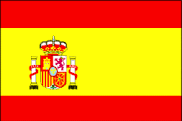
Jacobus Hoff
The Nobel Prize in Chemistry 1901
Prize motivation: "in recognition of the extraordinary services he has rendered by the discovery of the laws of chemical dynamics and osmotic pressure in solutions."
Eponyms
van 't Hoff factor - A measure of the effect of a solute upon colligative properties. It is the ratio between the actual concentration of particles produced when the substance is dissolved and the concentration of a substance as calculated from its mass. It is symbolized by I
van 't Hoff equation – This equation, proposed by Jacobus Henricus van 't Hoff in 1884, relates the change in the equilibrium constant of a chemical reaction to the change in temperature given the standard enthalpy change for the process. It has been widely utilized to explore the changes in state functions in a thermodynamic system.
Le Bel–Van 't Hoff rule – Proposed by both Joseph Achille Le Bel and Jacobus Henricus van 't Hoff in 1874, this rule in organic chemistry states that the number of stereoisomers of an organic compound containing no internal planes of symmetry is 2n, where n represents the number of asymmetric carbon atoms.

Photo Nicola Perscheid, Wiki. Painting Tim Tompkins PaintHistory.com
Name: Jacobus Henricus van 't Hoff
Birth: 30 August 1852, Rotterdam, the Netherlands
Death: 1 March 1911, Berlin, Germany
Affiliation: Berlin University, Berlin, Germany
Award: "in recognition of the extraordinary services he has rendered by the discovery of the laws of chemical dynamics and osmotic pressure in solutions."
Portion of Cash: 1/1
Images
Eponyms














